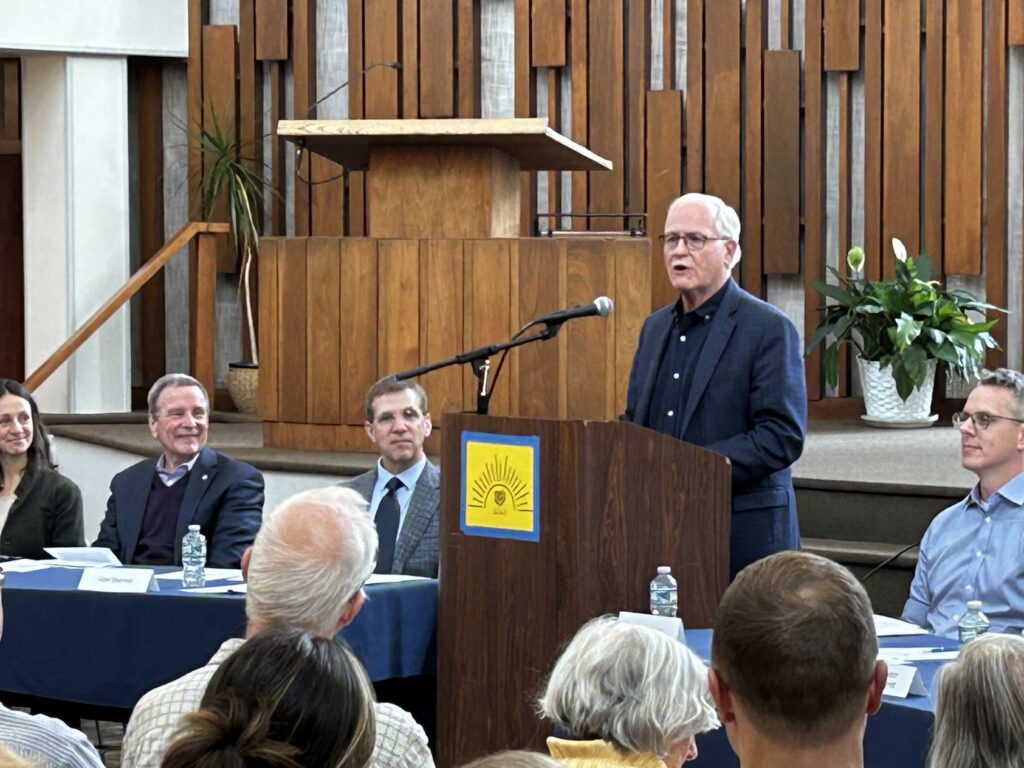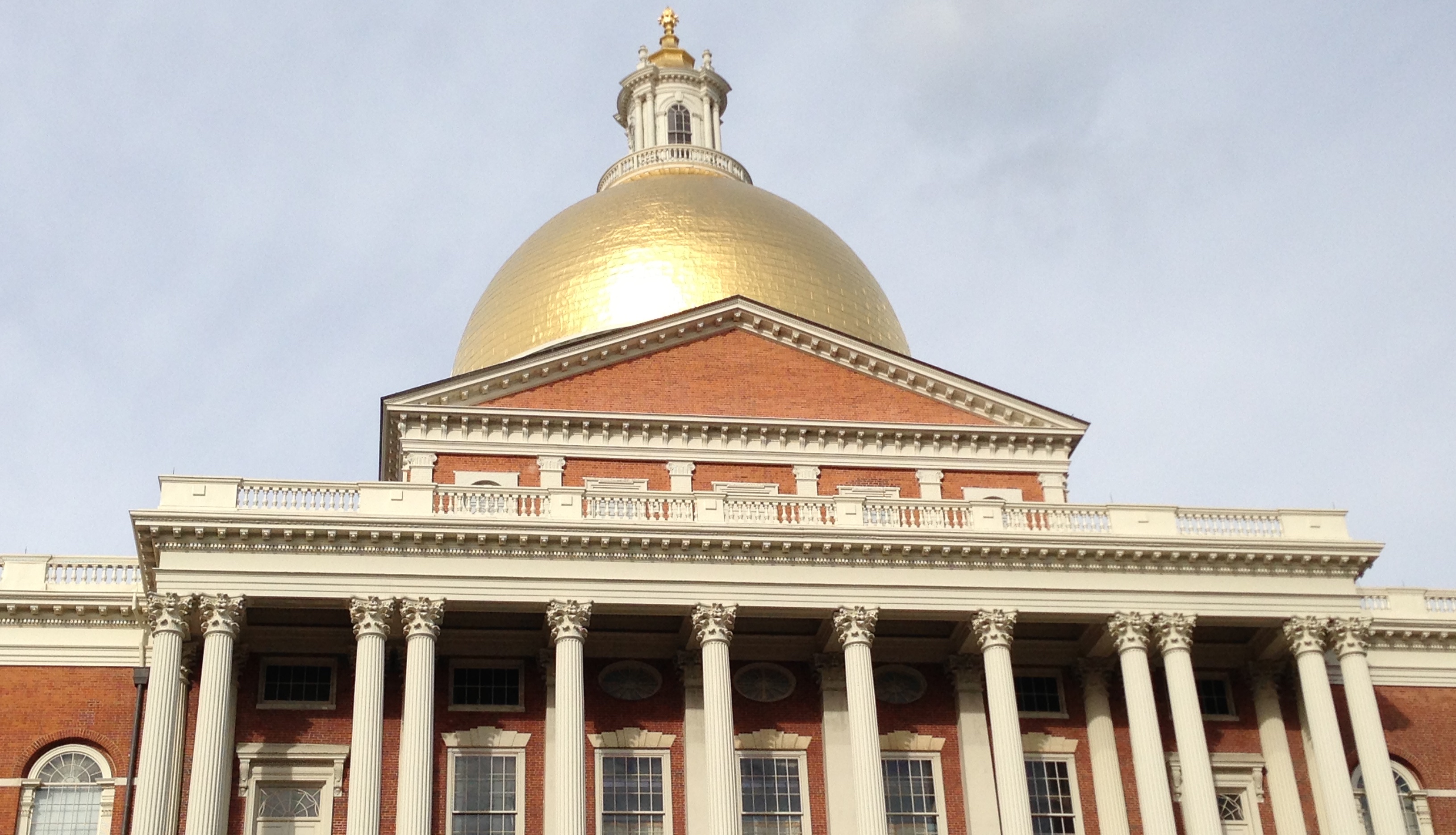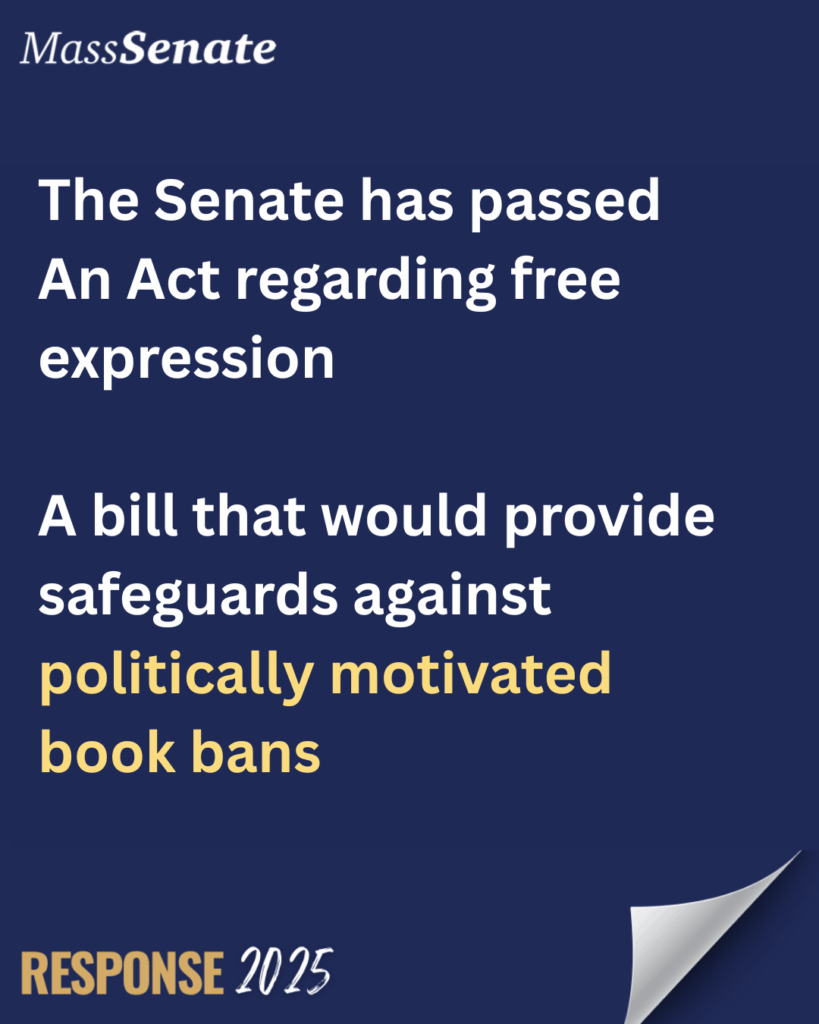State Senator Mike Barrett, Lexington League of Women Voters, December 2025
Minute Man Arc goes electric
Minute Man Arc, a nonprofit that supports people with disabilities in the Concord area, just unveiled its new fleet of electric vans. I helped lift the giant scissors at the ribbon-cutting.
We can keep pushing forward on climate regardless of the headwinds coming out of Washington. Nonprofits like Minute Man are planting the seeds of progress that will enable Massachusetts to continue decarbonizing through the Trump years.
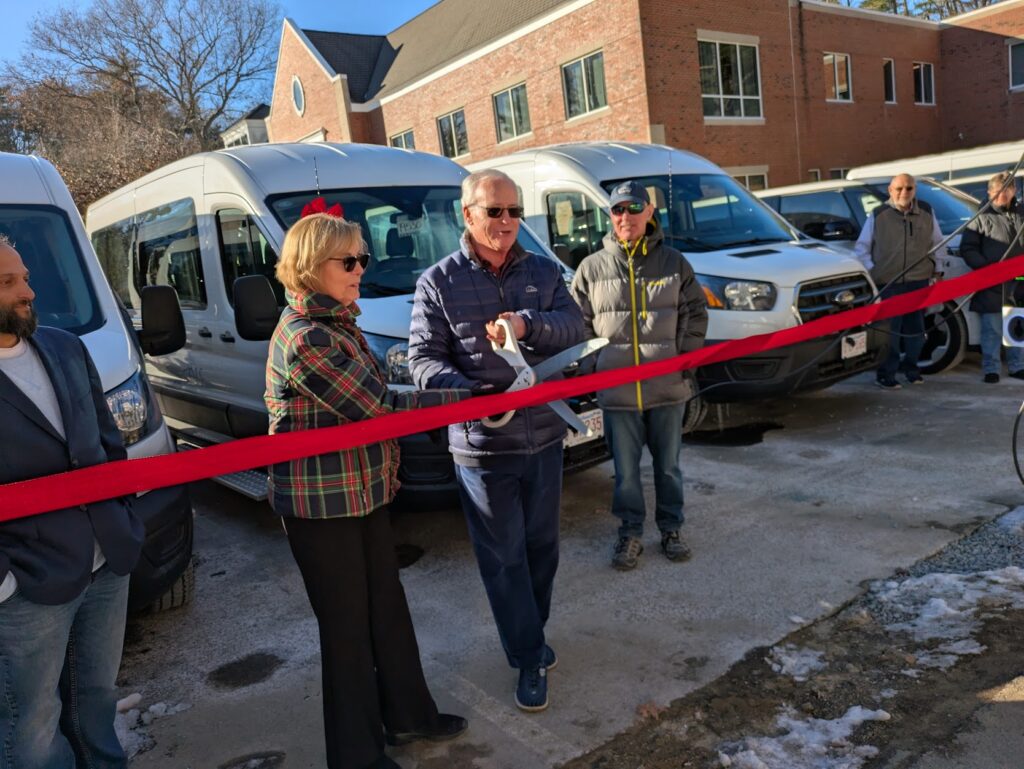
Energy affordability 101: Let’s not build out the electric grid and the gas grid at the same time.
Bill opens up the unknown history of state institutions
FOR IMMEDIATE RELEASE
The State Senate and House have passed a bill to open up the records of individuals who lived and died in state institutions for people with intellectual or developmental disabilities. State Senator Mike Barrett, who spearheaded the effort in the Senate, says the bill marks a big step in uncovering the hidden stories of former patients and residents.
A recent report published by the Special Commission on State Institutions found that barriers persist for members of the public — including relatives and researchers — who try to access the records of loved ones. Most of the records are under state custody but, due to privacy laws, remain largely inaccessible to the public. Several of the commission’s recommendations to address these issues.
“The commission opened a long-neglected inquiry into the troubling history of these facilities, including the Fernald School in Waltham,” Barrett said. “Fernald and its kin held people of all ages without their consent. It served as the site of ghastly violations of human rights. Yet much of Fernald’s story remains unknown. Thank you to Chair Michael Rodrigues, Rep. Sean Garballey, and the commission for their work to advance this measure, which will enable researchers to excavate the histories of people at Fernald and elsewhere.”
One provision of the bill makes available the records of people held in state institutions starting 75 years after their creation. Additional sections establish a rebuttable presumption that the disclosure of patient records more than 50 years after the patient’s death is in the best interest of the patient.
Other provisions create a moratorium on the destruction of patient records until they can be properly reviewed. Another measure repeals a law that allows medical schools to use the bodies of deceased patients of state institutions for scientific research.
“The Arc of Massachusetts is grateful to Senator Michael Barrett and Representative Sean Garballey for championing this language for many years. With their strong leadership, and with disability and human rights advocate Alex Green, The Arc helped lead the effort to create the Special Commission on the History of State Institutions. This new law brings to life a key commission recommendation. We must know the history of state institutions, however painful, so that we never repeat it,” said Maura Sullivan, CEO of The Arc of Massachusetts.
“The Arc extends its profound gratitude to the House and Senate for passing language in a supplemental budget that will restore dignity to former patients of state institutions and their families,” Sullivan said. “Thank you to Senate President Karen Spilka, Senate Ways and Means Chairman Michael Rodrigues, House Speaker Ronald Mariano, and House Ways and Means Chairman Aaron Michlewitz for including this vital language.”
“This legislation reflects a decade of work by thousands of disabled people and our allies to demand a long overdue reckoning with the society’s dark history of institutional violence against disabled people,” said Alex Green, a disability rights leader and faculty at Harvard Kennedy School. “Each of the records, graves, and human bodies set free by these laws was a human being whose memory we can now honor by saying their names, telling their stories, and ensuring that the disabled people of today will not be subjected to the same inhumanity. It’s a first step, and a monumentally important one at that.”
Having passed the Senate and House, the bill now awaits final approval from the Governor. Barrett is confident it will make it across the finish line.
“Massachusetts prides itself on sharing its rich history with the world. But not all of our stories are so uplifting,” Barrett said. “In the interests of paying a debt to history and learning from our mistakes, we should hesitate before picking and choosing only the nicest stories to tell. The past can be a guide, but only if we truly know it.”
###
Lawmakers poised to open up state disability records to families, researchers
GBH
Massachusetts lawmakers have reached an agreement on a bill that would make it easier for family members to obtain records of their disabled loved ones who lived in institutional housing. The governor is expected to sign it into law.
State Sen. Michael Barrett, who spearheaded the legislation in the Senate, said the goal of the bill is to serve families who have long been left in the dark while balancing privacy concerns.
“I’m feeling very good, that the House and the Senate made sure that this good, kind, sensible idea did not get lost,” he said. “This should give us more confidence that government works once in a while. It certainly is working in this case.”
Just passed in the State Senate: safeguards against book bans.
State institutions report calls for action on patient records
A new report sheds light on the troubling history of Massachusetts facilities for people with intellectual or developmental disabilities. Rep. Sean Garballey and I joined a panel hosted by the Harvard Law School Project on Disability to discuss it.
The report, written by the Special Commission on State Institutions, found that barriers persist for members of the public — including relatives and researchers — who have tried and failed to access the records of people who lived and died in these institutions. Most of these records remain in the custody of the state, but due to privacy laws, they remain largely inaccessible to the public.
One of the commission’s recommendations: pass a bill that Rep. Garballey and I have filed to open these records to the public after a certain amount of time has passed. Thanks to the commission, a similar provision was filed by the Governor and included in a recent Senate bill. I’m pushing to get it across the finish line.
Thanks to Alex Green, Anne Fracht, and Hezzy Smith for a wonderful conversation.
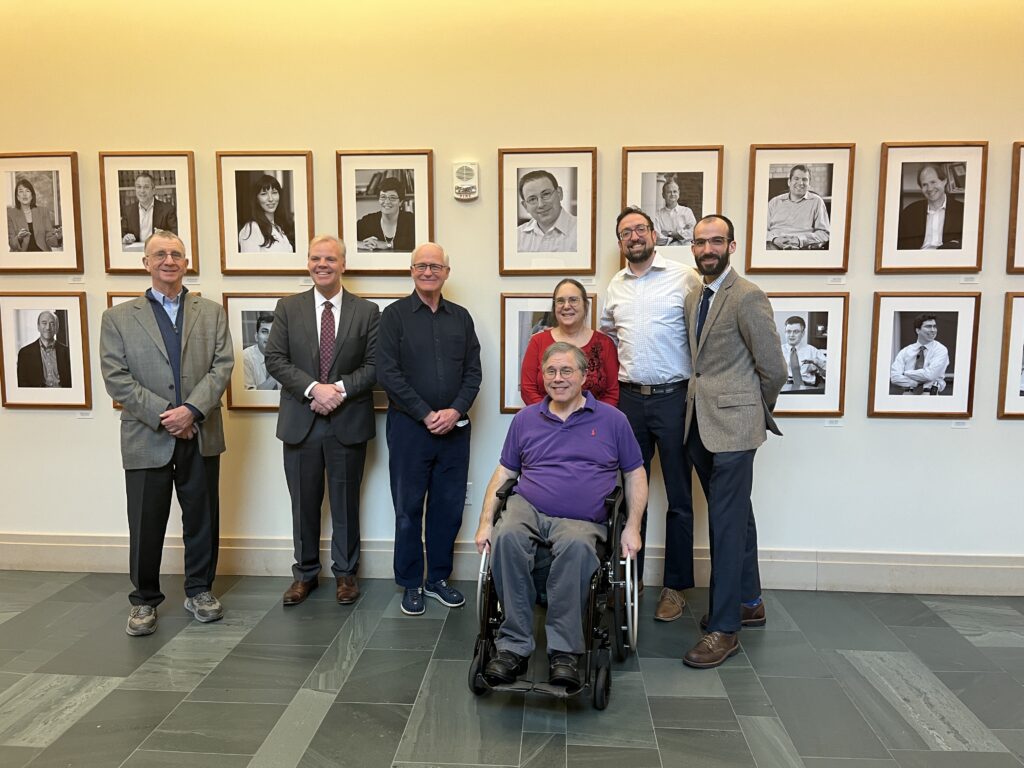
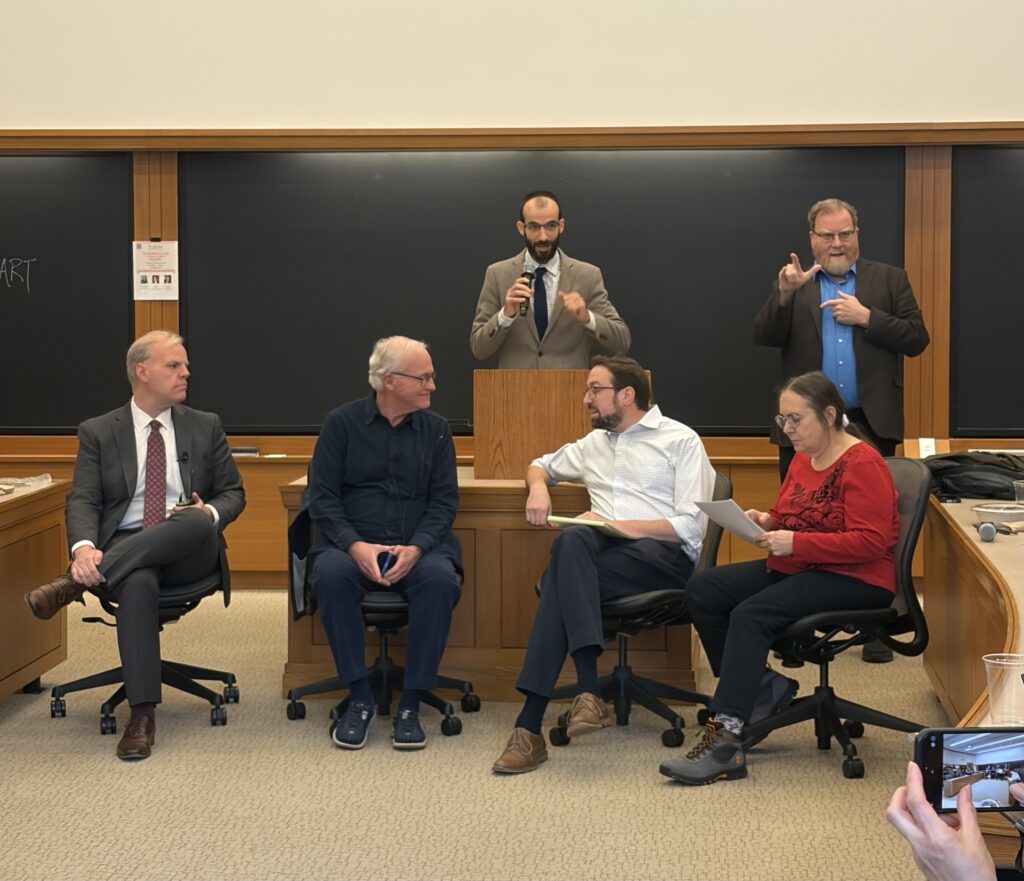
Temple Emunah marks five years of solar power
Trump is slowing down offshore wind. Solar can step in and fill the vacuum. A great example: Temple Emunah in Lexington hosts the largest solar installation of any synagogue in Massachusetts. And half of the energy generated goes to a community solar program that others can buy into. I joined community members at the temple to mark the fifth anniversary of the canopies’ installation.
